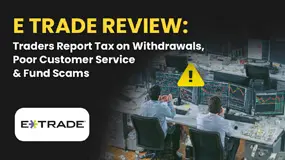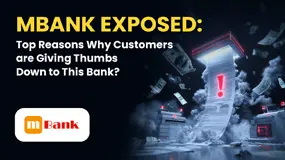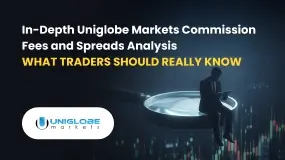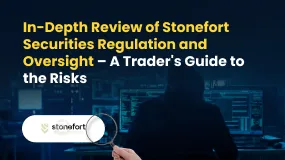简体中文
繁體中文
English
Pусский
日本語
ภาษาไทย
Tiếng Việt
Bahasa Indonesia
Español
हिन्दी
Filippiiniläinen
Français
Deutsch
Português
Türkçe
한국어
العربية
Investment Scams on Social Media: Why Do People Still Fall for Them?
Abstract:In the digital era, social media platforms have become a double-edged sword. While they connect millions of users worldwide, they have also evolved into a breeding ground for fraudulent investment schemes. Criminals exploit these platforms to lure unsuspecting victims with promises of quick and high returns.

In the digital era, social media platforms have become a double-edged sword. While they connect millions of users worldwide, they have also evolved into a breeding ground for fraudulent investment schemes. Criminals exploit these platforms to lure unsuspecting victims with promises of quick and high returns. Despite increasing awareness and repeated warnings from authorities, many individuals continue to fall for these scams, raising questions about what makes social media such an effective tool for fraudsters and why people remain susceptible.
The accessibility and anonymity of social media make it an attractive medium for investment fraud. Unlike traditional marketing, where businesses are subject to regulations and oversight, social media allows anyone to create advertisements or promotional content with little to no verification. Scammers can fabricate convincing profiles, complete with fake testimonials, manipulated trading results, and even AI-generated endorsements from well-known personalities.

A report from the Royal Malaysian Police (PDRM) highlighted TikTok‘s increasing use by fraudsters to orchestrate investment scams. Cases have surged dramatically over the years, with financial losses reaching millions. The platform’s vast user base provides an extensive pool of potential victims, allowing scammers to operate on a grand scale with minimal effort. Furthermore, rapid technological advancements enable fraudsters to produce highly sophisticated fake advertisements, making it increasingly difficult for users to differentiate between legitimate and fraudulent investment opportunities.
Even when an investment offer seems too good to be true, many still fall victim due to psychological and emotional triggers. One of the most powerful factors is the fear of missing out (FOMO). Social media thrives on instant gratification and the illusion of exclusivity. When users see others—real or fake—profiting from an investment, they feel compelled to join before it‘s ’too late.
Another reason is social proof. Scammers often fabricate success stories, showing fake testimonials or photos of luxury lifestyles to create the illusion of legitimacy. The more people appear to be benefiting, the more credible the scheme seems. Additionally, investment fraudsters exploit authority bias by posing as financial experts or influencers who project confidence and trustworthiness, further manipulating potential victims into believing their schemes are legitimate.
Advancements in artificial intelligence have further empowered scammers. AI-generated deepfake videos, voice cloning, and automated bots enable criminals to impersonate trusted figures with uncanny accuracy. Fake investment platforms can be built within hours, complete with simulated trading activities to convince victims that their funds are growing, only for them to disappear overnight.

As social media remains a hotbed for financial fraud, individuals must exercise caution and due diligence before engaging in any investment opportunity. Verifying the legitimacy of brokers and financial platforms through reputable sources, such as WikiFX, can provide crucial insights into their regulatory status, past user reviews, and risk ratings. Conducting thorough research, questioning unusually high returns, and avoiding pressure-driven decisions are essential steps in protecting ones financial security.

Disclaimer:
The views in this article only represent the author's personal views, and do not constitute investment advice on this platform. This platform does not guarantee the accuracy, completeness and timeliness of the information in the article, and will not be liable for any loss caused by the use of or reliance on the information in the article.
Read more

E TRADE Review: Traders Report Tax on Withdrawals, Poor Customer Service & Fund Scams
Has your E Trade forex trading account been charged a withholding tax fee? Did your account get blocked because of multiple deposits? Did you have to constantly call the officials to unblock your account? Failed to open a premium savings account despite submitting multiple documents? Is fund transfer too much of a hassle at E Trade? Did you find the E Trade customer support service not helpful? In this E Trade review article, we have shared certain complaints. Take a look!

mBank Exposed: Top Reasons Why Customers are Giving Thumbs Down to This Bank
Do you find mBank services too slow or unresponsive? Do you find your account getting blocked? Failing to access your account online due to several systemic glitches? Can’t perform the transactions on the mBank app? Do you also witness inappropriate stop-level trade execution by the financial services provider? You are not alone! Frustrated by these unfortunate circumstances, many of its clients have shared negative mBank reviews online. In this article, we have shared some of the reviews. Read on!

In-Depth Uniglobe Markets Commission Fees and Spreads Analysis – What Traders Should Really Know
For experienced traders, the cost of execution is a critical factor in broker selection. Low spreads, fair commissions, and transparent pricing can be the difference between a profitable and a losing strategy over the long term. This has led many to scrutinize the offerings of brokers like Uniglobe Markets, which presents a tiered account structure promising competitive conditions. However, a professional evaluation demands more than a surface-level look at marketing claims. It requires a deep, data-driven analysis of the real trading costs, set against the backdrop of the broker's operational integrity and safety. This comprehensive Uniglobe Markets commission fees and spreads analysis will deconstruct the broker's pricing model, examining its account types, typical spreads, commission policies, and potential ancillary costs. Using data primarily sourced from the global broker inquiry platform WikiFX, we will provide a clear-eyed view of the Uniglobe Markets spreads commissions prici

In-Depth Review of Stonefort Securities Regulation and Oversight – A Trader's Guide to the Risks
For experienced traders, the process of selecting a new broker transcends a simple comparison of spreads and leverage. It is a meticulous due diligence exercise where the integrity of the broker's regulatory framework is paramount. Stonefort Securities, a relatively new entrant in the crowded brokerage space, presents a complex and often contradictory profile. On one hand, it boasts a modern MT5 platform and a stream of positive user testimonials. On the other hand, it is shadowed by severe regulatory warnings that question the very foundation of its operations. This in-depth review focuses on the core issue for any long-term trader: Stonefort Securities regulation and oversight. We will dissect the broker's corporate structure, scrutinize its licensing claims, and analyze what the data implies for trader protection and fund security. For traders evaluating whether Stonefort Securities is a trustworthy partner, understanding these details is not just important—it is essential.
WikiFX Broker
Latest News
In-Depth Uniglobe Markets Commission Fees and Spreads Analysis – What Traders Should Really Know
WikiFX's New Evaluation of ATM Capital LTD: Does its License Protect the Arab Investor?
Is Axi Legit? A Data-Driven Analysis of Its Regulatory Standing and Trader Feedback
How a Fake Moomoo Ad Led to the “New Dream Voyage 5” Scam
FXPesa Review: Are Traders Facing High Slippage, Fund Losses & Withdrawal Denials?
Trive Investigation: High Score, Hidden Risk - The Profit Paradox
CMC Markets Australia Revenue Surges 34%, But High-Net-Worth Clients Face Tax Phishing Threat
Young Singaporean Trader Grew USD 52 into a USD 107,700 Portfolio
Is GGCC Legit? A Data-Driven Analysis for Experienced Traders
E TRADE Review: Traders Report Tax on Withdrawals, Poor Customer Service & Fund Scams
Currency Calculator



